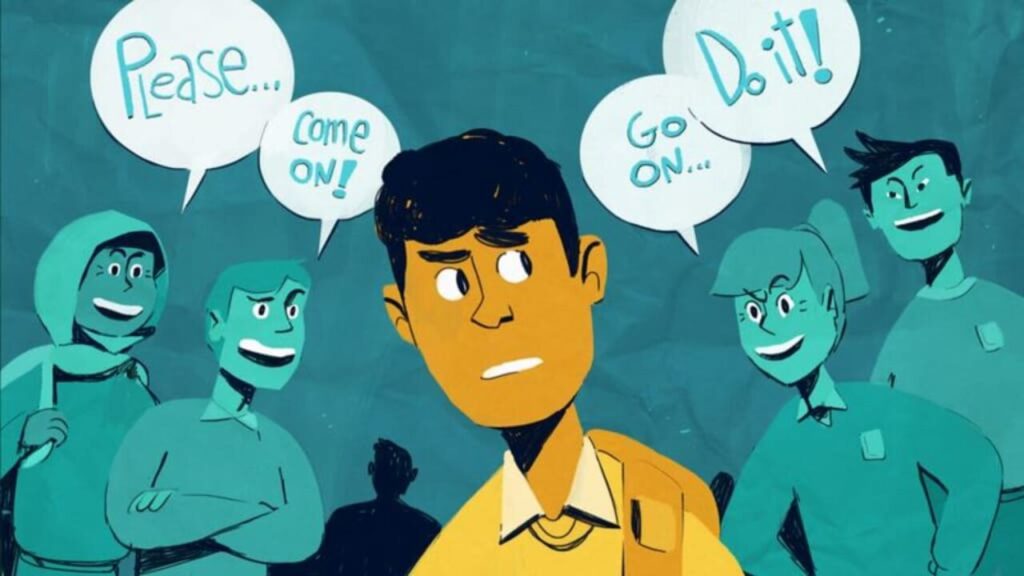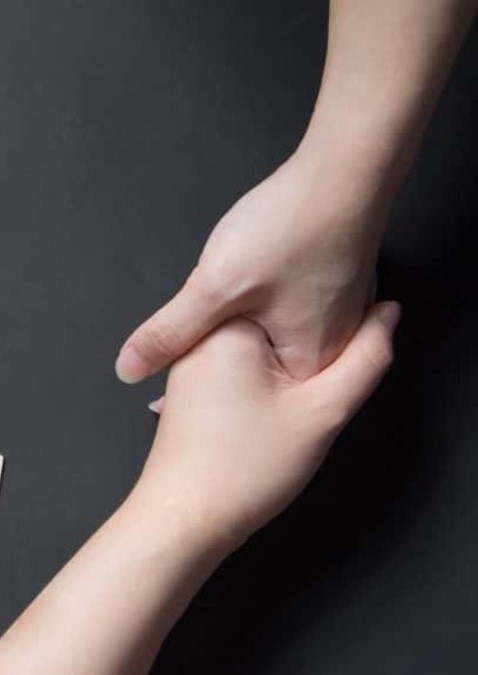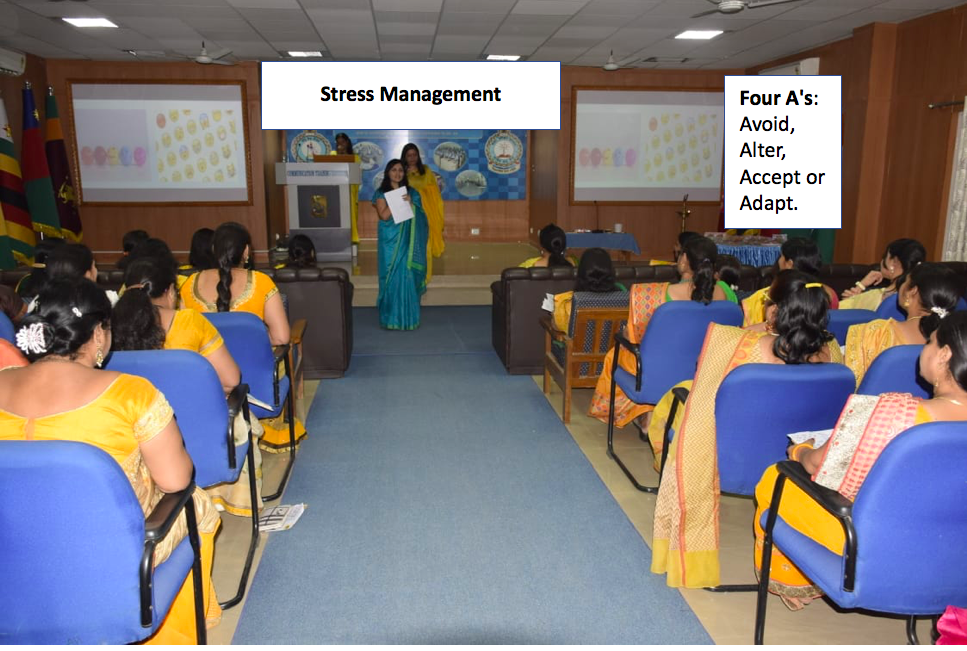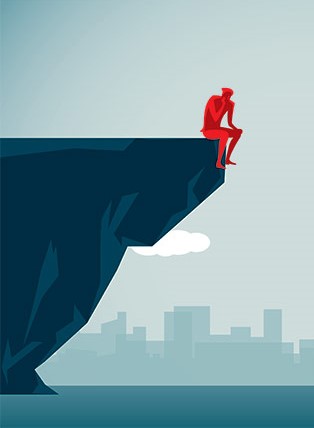Should I? Or Shouldn’t I?

Should I? Or Should n’t I? A feeling that one must do the same things as other people of one’s age and social group in order to be liked or respected by them is the dilemma or the pressure that most of us face today irrespective of the age but it is the adolescents and young adults who are most vulnerable.
Peers play a major role in the overall development of children and adolescents. The influence of peers begin at an early age and increases through the teenage years. It is natural, important and healthy for children to have and rely on friends as they grow and mature.
Peers and friends can have a positive influence or a negative influence on each other. So, it’s imperative to be cautious to select/choose one’s peer group. When a person gets involved in learning a new skill due to peer pressure, leading to exposure to healthy lifestyles and role models, and eventually leading the young person to become a positive role model himself/herself, then this kind of learning could be positive and it is called positive peer pressure. When a person changes his behaviour, attitude, values, basic personality structure just to fit himself/herself into a group, then he/she is under the influence of negative peer pressure.
However, the term “peer pressure” in general is a process that influences people to do things which otherwise, they might have not chosen to do.
Why are Adolescents Prone to Peer Pressure?
Statistics show that adolescents are particularly vulnerable to peer pressure because they are at a stage of development when they are separating from their parent’s influence, but have not yet established their own values or understanding about human relationships or the consequences of their behaviour. They are also typically striving for social acceptance and are more willing to engage in behaviours against their better judgment in order to be accepted. Peer pressure has been called a hallmark of adolescent experience.
It cannot be denied that adults are not vulnerable to peer pressure. Expensive gadgets, luxury cars, luxury homes and more are purchased when there is no need of it or when one can’t afford it but purchase them just because others in the peer group have it. Ladies are mostly into shopping spree just because some of the members of the peer group is into it. Such indulgences have resulted in heavy bank loans and financial burden.
Causes of Peer Pressure
- To fit into the group.
- To do what others are doing and want to have what other’s have.
- The fear of being rejected.
- Don’t want to feel awkward and uncomfortable by not following the group norms
- Don’t know how to get out of a pressure situation.
- To get noticed and impress others.
- Want to be liked by the group.
- Some are not sure what they really want and blindly follow the group
- Low self esteem and lack of self-confidence
- Fear that they would be made fun of, if they don’t go with the group.
Risky Behaviours Due To Peer Pressure
Some risky habits/behaviours to comply to the group norms, just to be appreciated and being accepted are:-
- Smoking
- Drug, alcohol or inhalant abuse
- Drink and drive leading to dangerous accidents
- Unsafe use of social media and cell phone
- Stealing especially in their own homes
- Cheating and shoplifting
- Unsafe sex
Self Help Tips To Handle Peer Pressure
Peer pressure is normal while growing up. Everyone at some point or the other experience peer pressure but how one handles the pressure is what keeps him/her apart. Adolescents/teenagers/adults may device their own strategies to handle peer pressure or may follow these tried and tested tips-
- Work on decision making skills.
- Think before choosing your friends.
- Stay away from peers who pressurize you to do things that seem wrong or dangerous.
- Be assertive; learn to say “NO”.
- Learn to avoid or get out of situations which is unsafe or uncomfortable.
- With self-esteem and self-confidence, you can scale greater heights, work on these personality traits.
- Identify peers who resist peer pressure and spend time with them.
- When you are not able to handle peer pressure on your own, talk to a grown up like a parent, a teacher, a school counsellor or seek help of a trained mental health professional.
Tips for Parents to Help their Children
Parenting is the most challenging of all the roles because what is applicable today may not be applicable the next day, and one has to find new ways to deal with the same issue time and again. Learning and unlearning is the MANTRA of parenting. Parents have their own ways of raising their children. However, the below mentioned points are time tested and have positive impact when applied.
- You are the first teacher to your child and play a vital role in the development of your child’s personality. Consciously and unconsciously your child is learning from you at all stages. So, exhibit good habits and have a balanced personality.
- You need to be conscious and alert to the changes that your child exhibits.
- Your adolescent son/daughter may be a child to you but he/she feels like a grown up and want to be treated like one. So, encourage an open and an honest communication. Let him/her know that they can approach you, in all situations and circumstances.
- Teach your child to be assertive and to resist getting involved in dangerous or inappropriate situations or activities.
- It is important to know your child’s friends and have their contact numbers. If issues or problems arise, share your concerns with their parents.
Communication regarding safe internet and social media use is important. There are several instances wherein children have been jailed and also gone to the extent of committing suicide due to unsafe use of internet and social media.
- Self-confidence is the key to right decision making and success in anyone’s life. Help your child to develop self-confidence. Children who feel good about themselves are less vulnerable to peer pressure.
- Communicate to your children that you stand by them in all situations and circumstances. For example, let them know that you’ll always go and get them out of any situation or circumstance, no questions asked, if they feel worried or unsafe. With this confidence, the child will try to get out of uncomfortable situations.
- If your child communicates to you about difficulties with peer pressure or you find out that he/she has difficulties in handling peer pressure, talk to his/her teacher, principal, school counsellor or family doctor. If all the above tips have failed, and still there are concerns to be addressed regarding your child’s mood, self-esteem or behaviour, consider consulting a trained and qualified mental health professional.

A CASE STUDY
An interesting case came up for counselling wherein the Client X was referred by her parents. She was a beautiful girl but looked distressed. The case history and psychological assessment revealed that she was a bright, intelligent and a responsible child. She was a single child to her parents, belonged to a upper middle class family, went to a convent school where rich students studied. Her parents were well educated and placed well in their careers.
However, in the last couple of months there was a drastic change in her behaviour and attitude. She showed less interest in studies which resulted in low grades. Her dressing sense had changed and parents felt her dressing was inappropriate and many times they had arguments over the way she dressed. She argued for almost everything with her parents, threw tantrums and placed undue demand for money and materials which parents felt was inappropriate. She wanted to meet her friends at odd times and demanded for night out with friends.
Thorough diagnosis revealed that the changes mentioned above were due to the peer pressure and bad influence of the friends and the company that she was in. The psychometric tests conducted revealed that the client needed to work on certain personality traits and improve on it.
The role of the parents and their responsibility is well appreciated in this case wherein, they realized that their daughter’s behaviour was inappropriate and needed professional help. Peer pressure is one of the main causes for risky behaviours especially alcohol and drug addiction. Fortunately, in this case the client was not involved in any such behaviour.
Having knowledge of the source, cause and personality traits of the client, she was helped to address and overcome the issue using counselling and psychological techniques.
Being aware of, and carefully choosing the influence of peers that will lead to healthy and happy experiences is a lifelong process. To seek help from a counsellor/mental health professional when self help and family support fails, is crucial and advisable. So, whenever there a dilemma or self doubt, “Shoul I or Shouldn’t I”, it’s better to take time on decision making or talk to someone you trust/counsellor.




Good one and Very interesting...